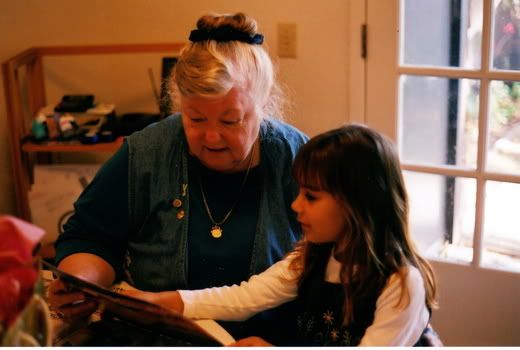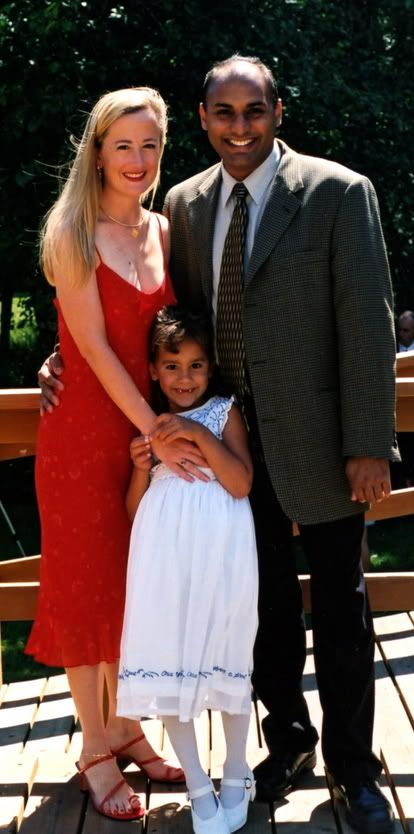 As a parent, getting the chore thing right was vitally important to me. There was so much tension as I was growing up around chores, as mentioned in Melmac Dishes and In A Nutshell II and IV-a and Binocular Vision that I had no intention of reliving that from the other perspective. It had been bad enough that I had left home at 16 to live with my great-aunt and Forrest had left home at 17 and worked his way through his senior year of high school. So, when Richard was still crawling around the floor I started researching this subject. I majored in child development and later went on to get my masters in Montessori education, and I read everything I could get my hands on, observed parents and children I knew, and thought about it a lot. The result was a coherent theory that I then continued to test, refine, and build on.
As a parent, getting the chore thing right was vitally important to me. There was so much tension as I was growing up around chores, as mentioned in Melmac Dishes and In A Nutshell II and IV-a and Binocular Vision that I had no intention of reliving that from the other perspective. It had been bad enough that I had left home at 16 to live with my great-aunt and Forrest had left home at 17 and worked his way through his senior year of high school. So, when Richard was still crawling around the floor I started researching this subject. I majored in child development and later went on to get my masters in Montessori education, and I read everything I could get my hands on, observed parents and children I knew, and thought about it a lot. The result was a coherent theory that I then continued to test, refine, and build on.Children are motivated by two positive needs. They need to be loved and appreciated for who they are, even when they are naughty. And they need to contribute to the family. Children who don’t contribute, who have no chores, who aren’t allowed to help, feel insecure. This lack can lead to bad behavior, as children try to get undeserved attention to compensate for their fear that they don’t actually deserve any.
There are a number of goals to having a child do chores. One is the need to contribute. Another is the need that parents have for help a family is a unit that relies on its members -- Julie and Richard knew that our family could not get along without their help. What they did was important to me.
Another goal is teaching children skills for when they are grown. Whereas I learned a limited number of "girl" chores, we started with a list of things that have to be done around the house, from making beds and putting clean clothes away to planning meals, shopping, cooking, and occasional maintenance items. Over the years both kids had the opportunity to learn and be responsible for each skill on the list. When I was growing up, once you got a chore it was yours until you left home. My kids moved on to more complex and interesting things.
 Children try to help at a very young age. When Richard was about nine months old, Daddy asked him to bring his empty bottle to the kitchen, and Richard walked around three walls of the room, holding on, got the bottle, and walked it back the same path. He was so proud to be able to help. When Maya was 15 months, she regularly helped Julie unload the silverware from the dish washer. If we don’t let children help us at this age, we are setting our lives up to fight about chores in later years. If you think about it, there is almost always some part of the task your child can help you with. (I have a friend who let her border collie carry in the meat, and he never pierced the shrink wrap. If a dog can do it, so can a child.) And if you tell him he is too little or too young, you undercut his self-confidence.
Children try to help at a very young age. When Richard was about nine months old, Daddy asked him to bring his empty bottle to the kitchen, and Richard walked around three walls of the room, holding on, got the bottle, and walked it back the same path. He was so proud to be able to help. When Maya was 15 months, she regularly helped Julie unload the silverware from the dish washer. If we don’t let children help us at this age, we are setting our lives up to fight about chores in later years. If you think about it, there is almost always some part of the task your child can help you with. (I have a friend who let her border collie carry in the meat, and he never pierced the shrink wrap. If a dog can do it, so can a child.) And if you tell him he is too little or too young, you undercut his self-confidence.Just because a little one helps, it doesn’t mean he is ready to have that task assigned. Until the child is about five, it should always be voluntary. You can certainly ask, but you mustn’t be disappointed if your child has something more important right now.
It is also important to recognize that little people can’t meet adult standards. Richard decided at three that he wanted to make his own bed. And he did it himself from then on. I would have insulted him no end had I stepped in and corrected it. Every week when I changed the sheets, we would do it together, which gave him ample instruction in how to do it. For a long time, he slept in a pretty messy little nest, but he was proud of it.
 One thing I remember resenting about my chores when I was a kid (among a myriad of things I resented about them) was coming home from school and being expected to do chores while everyone else was enjoying themselves. I didn’t like being off on my own working. And I well remember visiting my Aunt Marvel in the summer and how she and her two daughters and I would clean the house together and absolutely love it. Seeing how fast we could get done to go out and play – all of us, Aunt Marvel included. Children enjoy helping their parents. And when my kids came along, that is what we did for a long time. Clean up common areas before we went to bed, dishes after eating, and the main chores on Saturday morning, followed by a family outing.
One thing I remember resenting about my chores when I was a kid (among a myriad of things I resented about them) was coming home from school and being expected to do chores while everyone else was enjoying themselves. I didn’t like being off on my own working. And I well remember visiting my Aunt Marvel in the summer and how she and her two daughters and I would clean the house together and absolutely love it. Seeing how fast we could get done to go out and play – all of us, Aunt Marvel included. Children enjoy helping their parents. And when my kids came along, that is what we did for a long time. Clean up common areas before we went to bed, dishes after eating, and the main chores on Saturday morning, followed by a family outing.I would never pay a child to do their regular chores. No one pays me to cook dinner or clean the bathroom or change the cat box. And keeping their own bedroom clean is self care, like brushing their teeth and taking a bath. It doesn’t count as a contribution to the family. Chores benefit everyone.
Since I didn’t pay my kids to do their chores, I couldn’t’ take their allowance away if they didn’t. So, I had to fall back on logical consequences. When they didn’t put their clothes in the hamper, I didn’t wash them. When Richard didn’t put his dishes in the dishwasher, I put them in the refrigerator overnight* and fed him off them for breakfast.**
I always tried to let the kids have a say in which chores and/or when they did them***. The more input the child has, the more likely he is to go along with the program.
* He had to learn, but I didn’t want him to die of salmonella.
** One reason I have more Richard discipline stories is that Julie would watch and see what happened when he did something. If there was a negative consequence, she didn’t repeat it. This was true with natural consequences as well as logical ones. What good, she asked, is an older brother if you can’t learn from his pain1
*** That was, of course, ahead of time. Deciding when we were waiting for the chore to be done that tomorrow would be good enough was not an option.


















6 comments:
One thing I didn't really appreciate, but in retrospect was pretty nice, were the binders you made for us, which laid out exactly what was expected on a daily basis, and a weekly basis, and maybe there was even more, I'm not sure anymore. But kids, even adults, can't be expected to remember someone else's definition of good enough, without some guidence. Having that binder to tell me that the daily chores weren't finished until x and y were done, but that I didn't have to do z until the weekend...that was helpful.
Good words, Joyce. Whenever my wife was in the hospital or out of town on business, our kids and I would have Family Conference, wherein we would divide up Mom's work. Five of the six kids each got a task--I could not think of a task for the two year old.
The kids all did their tasks without complaining and finished promptly. When my wife returned, she washed some of the dishes over, but said nothing to the kids about it.
--Jack
How wise. I wish I'd read this long ago ... before I gave up trying to get my kids to help out around the house. Your thoughtful logical consideration of this topic is what I wish I could have figured out for myself but somehow never did. I CAN forward it to my daughter though.
I made a kind of game out of cleaning the house, too. I'd turn on some rock and roll, LOUD, and the three of us would boogie our ways through each room. It made it fun.
My mother used to go behind me and redo everything I tried to do - dusting, making beds. Nothing satisfied her. Consequently, I NEVER redid any task undertaken by my children, no matter how young they were.
We used to have chores as well, and I didn't really like them until I got older (like 10). Something just clicked and I really wanted to do a good job on chores like mowing the lawn or cleaning my room.
Also, is that the "Julie got out of the bath and proceeded to wash the windows" picture?
Yes, that is the Julie got out of the bath and proceeded to wash the windows picture.
Post a Comment